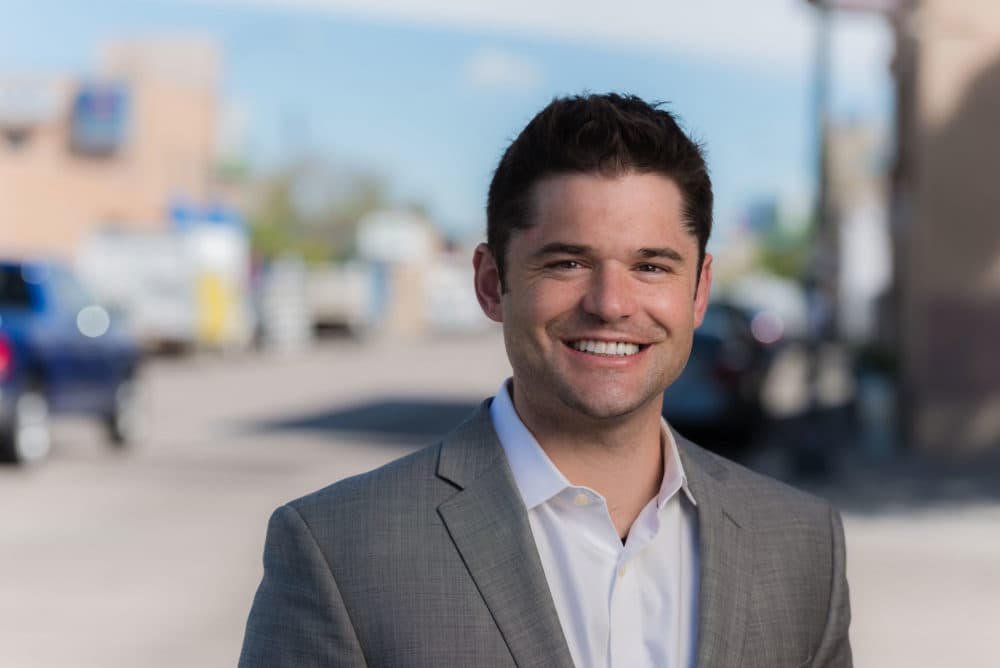Three candidates are racing to represent the Democrats in Senate District 32 in southwestern Denver. The current senator, Irene Aguilar, can’t run again due to term limits.
We spoke to the three primary candidates about their positions on key topics, including health care, education and housing.
Hazel Gibson

Hazel Gibson, a 35-year-old resident of University Park with a career in audiology, said that her worldview was shaped by a childhood in poverty.
“I grew up in poverty. I was raised by a single mom. I had to fight really hard for everything I have today,” said the first-time candidate. “I was just seeing all of these things that were being impacted by politics, that we were having to deal with.”
On education: “Statewide, we’ve gutted education for the last 27 years,” she said, citing the $330 she pays each month for full-day kindergarten tuition. She wants to see more spending on education, saying that public schools changed her life. Colorado could greatly improve children’s lives by focusing on interventions and services for young children, she said.
Gibson also wants to see TABOR repealed or changed via ballot initiative. “We have to do something,” she said.
On housing: She suggests the creation of a statewide fund to be spent on affordable housing. “I don’t think housing is a priority at the capitol,” she said. She also wants to see the state increase its minimum wage in order to keep people in housing.
“If we had a higher minimum wage, if we rewarded corporations that were coming into our state that were paying livable wages, providing health care, paid family leave — those kinds of things could help people forward,” she said.
She also wants the state to improve its infrastructure. She says that internet and road access have been neglected in much of the state, especially the mountains. “And while I don’t believe in expanding our roads, I believe in investing in more public transportation,” she said.
On health care: Gibson wants to see the state experiment with regulations that would standardize cost-setting processes in the health care and insurance industries.
“If you make it where regardless of your insurance coverage, doctors are paid the same, then you can make it so people on Medicare and Medicaid have access to care. That is something we could do as a state,” she said.
Overall, she wants a universal health-care system. “As long as we have a for-profit system put in place, quite frankly, the middle class is just going to continue to get hit, over and over again,” she said.
Zach Neumann

Zach Neumann, 34, is a first-time candidate who lives in Denver’s Alamo-Placita neighborhood. He was a designer of CareerWise Colorado, a nonprofit led by Noel Ginsburg, the onetime gubernatorial candidate. Neumann also co-founded an agricultural technology company, and he has been a consultant for government and business.
“What motivated me to run this time is a feeling we have grown incredibly fast as a community, and what it’s resulted in,” he said, citing a lack of affordable housing and a lagging education system as primary concerns.
“In the district, you have some of the wealthiest people in our community, and you also have people who depend heavily on state services. I think it speaks to the need for state solutions that make this a livable place for everybody, no matter what their economic background is.”
On education: Neumann cites statistics that place Colorado low on per-pupil spending and teacher wages. “We can do better,” his website declares. His platform calls for greater investment in training and vocational programs.
“Over the past five to 10 years, we’ve really seen a widening of the gap between the haves and the have-nots in state Senate District 32,” he said.
On housing: Neumann says the state must do more to support the Colorado Housing Finance Authority, which is a primary funder of affordable housing. But, in the longer term, he wants to encourage the construction of affordable housing, such as a state-led investment fund.
“I think in the longer term,” he said, “we really need to start investing more and creating better economic incentives.” Policymakers also need to encourage higher-density construction, he added.
On health care: Neumann suggests that Colorado could create a “state-led Medicaid buy-in option,” also known as Medicaid for All. (Here’s a great breakdown.)
“What I hear most (while knocking) on doors, what people in the district are looking for, is affordability and accessibility.”
Robert Rodriguez

Robert Rodriguez, 49, has a long history in local Democratic politics. He has served various party positions locally, working to increase minority representation, he said. But this is his first run for elected office. He decided to run, he said, because he is worried by the growing role of money in politics, and in reaction to President Donald Trump’s election.
“If I want to represent my values -- look at everything through a lens of how it affects people, rather than how it benefits corporations, I can only trust myself. So I waded in,” he said.
On education: “Getting funding back to schools is a big priority,” Rodriguez said. “It’s hard to think about adding programs without fixing what we’re dealing with now.”
He wants to see the state adopt universal full-day kindergarten and pre-K. “I think it’s a big equalizer for working families,” he said. Part of the answer, he said, will be to eliminate TABOR. “It took three elections to pass TABOR, but it’s something we have to start looking at. It’s just a can we’re kicking down the road,” he said.
Rodriguez also names criminal justice reform as priority, citing his own work on the “front lines with outpatient treatment for mental health.” He is director of outpatient services and business development for Independence House, the community corrections program founded by his family. He’s a supporter of the “ban the box” initiative to forbid employers from asking about criminal records, and he wants to see sentencing reform for marijuana crimes.
On housing: Housing prices have been a top concern on the campaign trail. If elected, Rodriguez wants to “get more funding and more teeth into the (Colorado Housing and Finance Authority), strengthening their ability to leverage for more affordable housing options.
He also wants to allow cities to enact rent control, he said, although he has some doubts about existing models.
On health care: Rodriguez was a supporter of Amendment 69, the failed ColoradoCare proposal. He says that federal inaction has put the onus on local and state governments to solve health-care problems.
He said he would follow current senator Aguilar’s lead in pushing for reforms, such as a failed measure to import medication from Canada. Rodriguez supports “a single-payer or universal option,” he said.
If you care about journalism and politics in Denver, you can subscribe to our newsletter and become a Denverite member.












